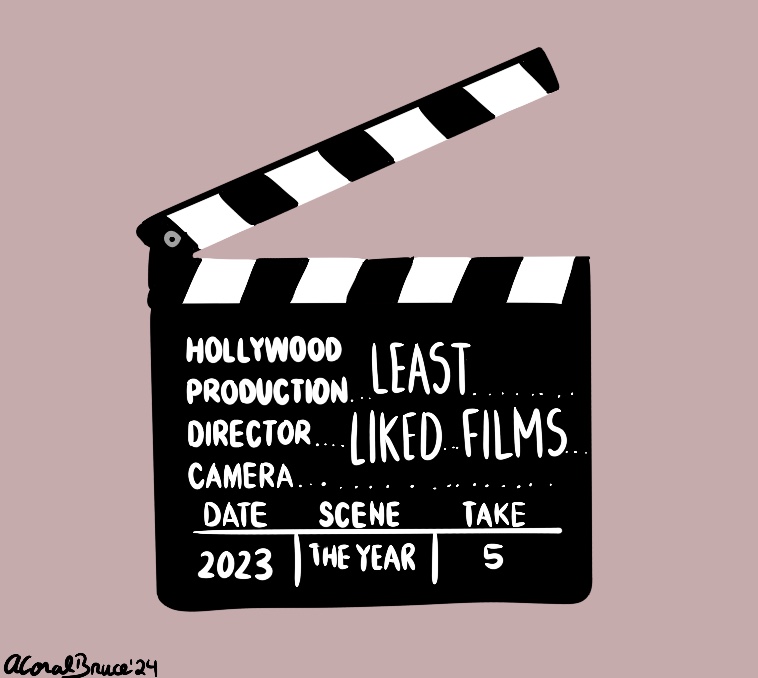With college students constantly being reminded they are “leaders of the future” and put under the pressure of undertaking great political responsibilities, it is imperative that college boards and higher education leaders instill the right examples and messages for students to follow.
That is why the collegiate debate topic for this year is corruption of education. The official Cross-Examination Debate Association topic for this debate season is that “the United States’ Federal Government should substantially increase its democracy assistance in one or more of the following: Bahrain, Egypt, Libya, Syria, Tunisia, Yemen.”
For those who don’t follow speech and debate, this essentially means that for the rest of the academic year, all college debate teams in America will be arguing that the American government should be promoting and enforcing democracy in the specific middle eastern countries listed. And that, my friends, is a true pity.
With America’s foreign democracy track record, the last thing that needs to be ingrained into the minds of college debaters is the idea that America should continue its incessant attempts at initiating democracy wherever it possibly can because it hasn’t been rather successful.
As Americans, we also tend to have convenient definitions of democracy. The meaning can shift to meet the needs of the time, so that we can innocently state that we are entering Iraq, Chile or Haiti to spread “democracy,” when really there are alternative motives.
Unfortunately, most Americans, especially the youth of the nation, are blind to this problem because the United States, as a culture and a country, has a severe case of historical amnesia.
Forgetting about those less glamorous battles fought, America instead focuses on the glory of our successes and the beauty of this flawless idea we call democracy. The United States makes footnotes in its history whenever something doesn’t quite go its way, allowing the younger generations to wear blinders, shielding them from any shaky decisions or questionable outcomes that America has met.
A prime example could be from 1973, when America funded a coup in Chile, debatably supporting the assassination of their president. This led to the overtaking of the country via destructive dictator, who exiled more than one million Chileans, not to mention beat and killed thousands.
Chile is still recovering. Needless to say, this devastating event was a hugely significant part of their history, yet a footnote, if even that, in America’s history.
In similar terms of democracy, America has set burdens on Nicaragua, Haiti and probably most popularly, Iraq. While the events in Iraq can be a touchy subject, the fact is that we can’t handle a lack of control. We entered Iraq claiming it to be a “war on terror,” but when that didn’t follow through, it became a “democracy promotion.” Yet, when the country finally voted a leader in, the U.S. Federal Government decided that they didn’t like him and quickly replaced him. That is not democracy.
While democracy may work well for the established system in America, it has been proven time and time again that the United States’s idea of democracy assistance is a steadfast route to international problems.
By having this topic be analyzed and researched by college students, it may help a handful of “the future’s leaders” to understand the past leaders’ mistakes. But by promoting democracy, the mass Democracy-as-a-positive-influence continuum is only being furthered. It’s a disgrace to education and a step in the wrong direction for college students nation-wide.
______________________________________________________________________________________________
Andra Kovacs/News editor
Andra Kovacs can be reached at [email protected].







ian • Sep 24, 2011 at 11:52 am
Defend the wall.
Jr • Sep 20, 2011 at 6:53 pm
Dylan, you are so diplomatic. My first impulse was to call this author an idiot and suggest that they do their own arguments a disservice by being such a terrible advocate.
Chris Lundberg • Sep 20, 2011 at 6:45 pm
Luckily, those students will have to argue for and against the resolution. I am sure some will even cite this article when they argue against it.
These students will do the most comprehensive job you can imagine researching all sides of this issue, drawing from sources in not only history, but political science, international relations, philosophy, and almost any other relevant discipline you can think of. If the project of promoting democracy is as flawed as you suggest, they’ll figure it out.
There is no better tool for combating “historical amnesia” than competitive, research driven, switch-side debate.
Danielle • Sep 20, 2011 at 6:35 pm
You do understand that in half of their debate rounds, students must go negative and thus say that we should NOT provide democracy assistance?
Kel • Sep 20, 2011 at 6:32 pm
Your portrayal of academic debate is rather inaccurate. In academic debate, students are taught to research, analyze, and debate *BOTH* sides of each topic and in order to compete, students have to alternate back and forth from one side of the topic to the other, which resolves all of your concerns listed. In fact, in the few tournaments that have happened so far this season, all of the issues you outline have been central to the debates and have been thoroughly interrogated by both sides. The value of academic debate is to view a topic from multiple perspectives precisely to avoid the historical amnesia and dogmatic views that concern you.
Richard Garner • Sep 20, 2011 at 6:17 pm
Sadly, this article is extremely misinformed on the nature of collegiate policy debate. Regardless of the particular merits of U.S. democracy assistance, no matter what the topic is, debaters argue *both sides* of the topic. Sometimes they affirm democracy assistance, sometimes they negate it and argue that it is not necessary or counter-productive.
And, as I know from first hand experience, when they do negate it, they do so with great attention to detail, nuance, and evidence. They do not assume that, because the topic is controversial, that it is therefore not subject to debate.
Eric Jenkins • Sep 20, 2011 at 6:03 pm
Wow,
You have no clue what debate is about. People have to argue both sides of an issue, so they will (quite often) make the very same arguments against democracy assistance that you make. In fact, these arguments will be so common that most affirmatives will try to redefine democracy assistance into something more positive. So, if you believe this, then debate will teach the future leaders what you believe. Also, your argument is very anti-education and anti-democratic. Don’t debate a major foreign policy because you don’t agree with it? Because it has historically been a failure? Sounds like really good reasons to debate the topic to me
Dylan Quigley • Sep 20, 2011 at 5:49 pm
Ms. Kovacs-
My name is Dylan Quigley, I am a debate coach for a college in the northeast and one of the many individuals who helped craft this year’s policy debate resolution. I agree with much of what you said about the undesirability of forceful US democracy promotion and it’s history of destruction and it is precisely because of that I think this is an excellent topic for college students to debate. Competitive policy debate requires students to be able to argue both sides of every issue and it creates a level of education that, in my experience, goes far beyond anything they could learn in a classroom.
We have just finished the first tournament of the year and many, many teams have crafted arguments to negate the resolution that rely the examples you cite in your article. Some debaters have made much more radical arguments. Criticisms of the resolution based on post-colonial, anti-orientalist, anti-neoliberal, and Black Liberationist perspectives are common. Even when affirming the resolution, many debaters have found ways to argue that US democracy assistance must break from from its historical legacy of colonialism and geopolitical manipulation and instead focus on a pluralist and progressive agenda.
Debate is a wonderful and self-reflexive activity where an amazing number of arguments that would never get an honest hearing in the American public sphere are able to flourish. The debate community’s response to this resolution is no different. I do think we are producing the “leaders of the future”, ones armed with skills of critical analysis that will help guard them against the drumbeat of ideological imperialism you rightly criticize. Best
-Dylan Quigley